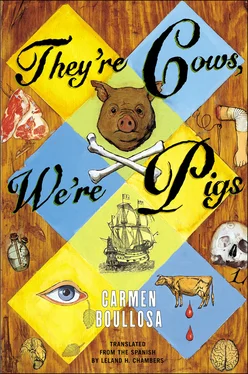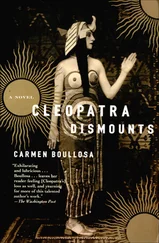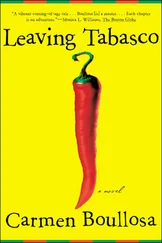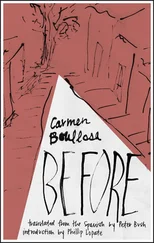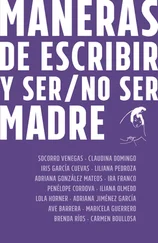Organized into several columns, we entered Gibraltar. Still they defended themselves. First we attacked the monastery situated at the base of the walls, thinking to protect ourselves from the bullets with the bodies of the monks and nuns; and undoubtedly, out of the respect they hold for such persons, the Spaniards would not have fired at us were it not for the shouts of the former: Death to these heretics! Shoot, so the Lord will gather us unto Him! Kill them! since for Christians death does not exist, but eternal life! Shoot, shoot! Do not be cowardly. Death to the heretics! They killed them all.
Within the city, the superiority of the Spaniards was still notable. We fought furiously, but as they were protected within their buildings and made all the stronger by their familiar knowledge of the place, they gave us no quarter.
L’Olonnais ordered the retreat.
They scarcely saw we were outside the town when they came rushing out in order to follow us, which is what our Admiral hoped for. There we were able to trounce them, and those who were not killed or did not fall into our hands fled in the din of the battle.
We entered Gibraltar now like furious wolves. We raped the women, we pillaged the church, we destroyed the images, we leveled it all, we took three hundred prisoners, men, women, children, and slaves, and put a price on each one, ransom money for all of them. The majority died of hunger because there was little food. For ourselves we set aside all the cassava roots, as well as the poultry and the pigs, and in order to feed the others we had some donkeys killed; but they preferred to die rather than eat such filthy meat, especially when the worms got into it and it seemed more like swarms of flies than food.
With the prisoners L’Olonnais went off into a fury of cruelty, submitting them to awful tortures so they would confess where they had hidden the great riches of Gibraltar and Maracaibo, and to verify whether there might perhaps be another army to attack us. He cut off the tongues of those who would not speak, he branded their bodies and cut off their limbs, he burned them or did terrible things to their bodies that left no mark but made their inner organs burst. After having ruled Gibraltar for four weeks, we demanded extortion money not to burn the place down. We asked for ten thousand pieces of eight not to set fire to the town, for lack of which we would burn it and reduce it to ashes. We gave them two days to bring in this sum, and the conquered citizens being unable to scrape it together so quickly, we set the town alight in several places. The Spaniards begged us to put out the fire, and that we did, aided by the residents who came together, but since we had spread tar and oil over the stones of the buildings we had set fire to, no matter how hard we worked we were unable to avoid the destruction of part of it, especially the convent church, which was reduced to dust, down to the foundations. After receiving the money mentioned above, we carried silver, furniture, money, jewels, and goods aboard, together with a great number of slaves that had neither paid off their ransom nor yet died.

The Bravos, their bodies painted in vivid colors, were waiting for us in front of the spot where, under the Spaniards, the governing palace had been located, an esplanade of goodly size, bare of vegetation, in the center of which, on a wooden platform the way they do, the body of the Indian whose heart L’Olonnais had torn out was awaiting us. Women on their knees surrounded him, weeping and screaming, striking their heads against the ground. The men were calling out and shouting, walking back and forth.
In astonishment, we saw this scene from our flotilla, and also the men we had left behind, moored only a few yards out from the wharf, loaded with the booty stolen from the city.
A piragua approached L’Olonnais’s ship. In it there came an interpreter from the Bravos who in good French said he had orders from his chief to bring L’Olonnais before him in order to give an explanation of what had occurred (sensible words to which L’Olonnais would not give ear) and ventured to affirm himself deceived by the peaceful L’Olonnais they had known, a quiet man who had seemed like an inoffensive animal; but who, now, as in the midst of a fight, before their very eyes becomes inflamed and turns into a demon, into a fury, a hurricane, and without listening to the messenger, orders a small boat to let our men know they are to bring their ship over to us, and that for no reason will he go to meet the Bravos’ chief, for they were nothing but savages while he was a Frenchman and had no reason to explain himself to anyone, much less to the Bravos, who were not in the least brave and courageous since they had been vanquished by those ignorant Spaniards.
The interpreter returned with this reply, and the Indians prepared to attack us.
Fortune was on our side that day; the Spaniards had received reinforcements and followed our progress, we on the water, they on land, having planned a strategy with the aid of Rafael Marques (whom we no longer even remembered), thinking to attack us when we were inside the walls of Maracaibo once more, at the spot which was the weakest point of our position in the city — the very place where the Bravos had been stationed! What must have been the anger of the latter, not only upon hearing L’Olonnais’s rude reply but then seeing the hated Spaniards enter; upon which they fell into furious combat. From our ships we launched cannonballs against both parties, causing terrible casualties, greatly increasing the number of dead, and not a few already that they had already wrought amongst each other.
When we set foot on dry land once more, Rafael Marques, wounded in one leg, was waving a white flag and greeted us with a wild tale shouted out of how the Spaniards had made him prisoner and how pleased he was to see us returning victorious, using words that I will set down here, gesturing so wildly that he seemed more like a drunk than a guilty man, more a buffoon than a traitor, for panic had overtaken him and he was unable even to attempt to tell the truth while his exclamations ran on like this: Brothers! You who obey the Law of the Coast, salve! Long live the pirates and may these corpses die who, because they are Spaniards, deserve to be corpses! To take me as your prisoner, is that not a lack of respect? Because, who am I? I am the vassal of pirate justice! Long live the Society! I raise a toast to you! Upon which one of our men put a bullet into him so he would never again open that cowardly, deceitful, vile, traitorous mouth whose eloquence did not serve to hide his mean spirit. From the top of the mixed pile of bodies Spanish and Indian, Queen Metecona of Blue Island no longer needed his cloak to reign on earth.
L’Olonnais was not satisfied. He demanded a ransom for the city as well as for the prisoners we were dragging around with us, or at least what was left of them. We had been two months in the Bay of Maracaibo, if what now presented so different an appearance could still be called Maracaibo, when we finally received the ransom for the city. We left then, bound for Tortuga. Our booty was much more considerable than anything we could have imagined.
To get through between the two capes that would let us out into the open sea, we sent to Maracaibo for help, where it is said their fear was reborn and only stilled when they discovered we were merely in need of someone knowledgeable to guide us. There were no more Indians any longer who might do this. We had finished them all off. Along with their women. The children in their huts wept, and when they saw us passing by, if we came close to any of their islands, they threw rocks and sticks at us; for good reason were they named “Bravos,” and if they had had any weapons, they would have fought valiantly against us; the poisoned arrows they learned to shoot very young, and shoot well, would have caused many casualties amongst us, were it not that, on the very spot where so many Indians had died, we had made a great bonfire of their weapons.
Читать дальше
